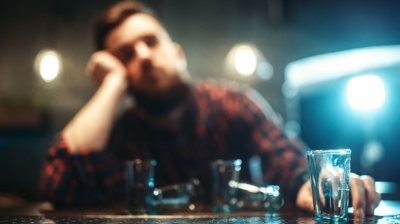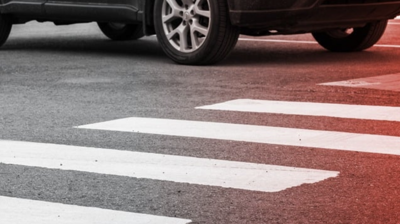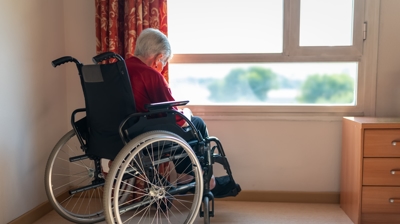Do you have to call the police after a car accident in Missouri?
Yes, if there are injuries, damage greater than $500 or if the driver is uninsured. In other words, unless it’s a straightforward fender-bender with no other complications, you need to call the police.
If you or someone you love was involved in a collision and you need legal help, don’t hesitate to reach out to an experienced St. Louis personal injury attorney. Contact the experienced team at Niemeyer, Grebel and Kruse today at (314) 350-1900 for a free consultation.
When to Call the Police After an Accident
While you are required to call the police in many cases, it’s not just major car crashes that merit a call to the local police.
Even if you’re involved in a minor car accident, having an officer at the accident scene can prevent potential headaches down the road. The officers’ assessment and the subsequent accident report help establish the facts, protecting you from possible false claims of vehicle damage or bodily injury by the other driver.
Serious Injuries and Medical Care
In crashes with serious injuries, the first thing you should do is call emergency services.
Dialing 911 ensures that medical care arrives promptly and that the accident scene is secured. The responding officer’s report will include details on the injuries, providing an official record that links them to the accident – a critical element if insurance claims or legal actions are pursued.
Even when the police can’t reach the scene, possibly due to more severe incidents, your prompt request for medical help remains a recorded response to the injuries incurred.
This can prove invaluable in the following circumstances: when it’s time to prove the severity and cause of the injuries during the insurance claim process.
Significant Property Damage
As we mentioned above, when the property damage from a vehicle accident exceeds $500, you are required to file a police report. But beyond legal obligation, involving the police provides a clear narrative of events which is instrumental in determining fault and the extent of damages when dealing with insurance companies.
In the absence of a police report outlining the accident, insurers might dispute claims, putting you at risk. That’s why creating police reports for such incidents isn’t just about ticking a box, it’s about safeguarding your interests down the line.
What Happens If You Don’t Report an Accident?
Failing to promptly report a traffic accident in Missouri can result in fines and potentially more severe penalties depending on the circumstances.
- License Suspension – The Missouri Department of Revenue may suspend your driver’s license if you fail to report an accident. This suspension can occur if the accident involved significant property damage, injury, or death and was not reported within the required timeframe.
- Insurance Issues – Not reporting an accident can complicate insurance claims. Insurance companies typically require accident reports to process claims. Without a report, you might face delays or denials of coverage, leading to out-of-pocket expenses for damages or injuries.
- Legal Liability – If you don’t report an accident and it is later discovered, you could be held liable for damages and injuries. This can result in lawsuits, increased insurance premiums and potential financial burdens from court judgments.
- Criminal Charges – In cases involving serious injuries or fatalities, failing to report the accident could result in criminal charges, including hit-and-run allegations. These charges can carry severe penalties, including imprisonment.
Minor Car Accidents: Should You Call the Police?
A minor scrape or bump might not seem worthy of police attention, but even the smallest incidents can spiral into major disputes.
It’s a common misconception that minor car accidents don’t require a police report, yet experts, including insurance companies and car accident lawyers, recommend erring on the side of caution and calling the police. The report acts as an impartial record of the incident and a defensive wall against potential future claims.
It’s understandable to question the need for police involvement in what seems like a straightforward exchange of insurance information. However, the absence of an official report opens the door to potential challenges, from disputes about the accident’s details to false injury claims. By getting the police on record, you’re not just documenting the incident; you’re protecting your interests in any forthcoming negotiations or legal battles.
Exchanging Information
In the immediate aftermath of a minor car accident, the exchange of information is a priority. You’ll need the other driver’s name, contact details, and insurance information – all the essentials for both parties to move forward with their respective claims with the other driver’s insurance company. Even if the police are not present, this step cannot be skipped; it’s the foundation upon which any future claims or disputes will be built.
But what if the other driver is uncooperative, or worse, flees the scene? In such cases, any information you can gather becomes even more crucial.
License plate numbers, vehicle descriptions, and even the direction in which the other car was headed can help law enforcement track down the other party and ensure that justice is served.
Documenting the Scene
Snapshots of the accident scene, including vehicle damage, positioning, and any relevant road signs or signals, can corroborate your account of the incident. These images are silent witnesses, speaking volumes when you need to report the accident to both police and your insurance company.
Consulting a Car Accident Lawyer
With a lawyer by your side, handling police reports and navigating insurance claims is a lot easier. Your attorney will be your trusted advocate throughout the process, doing the heavy lifting on your auto accident case while you focus on recovering from your injuries.
In addition, an experienced car accident lawyer, familiar with the legal system, can assist in maximizing your compensation.
From collecting evidence to negotiating with insurance companies, a lawyer can be the difference between an adequate settlement and one that truly covers all your damages and suffering.
Free Case Consultation
If you’re dealing with the aftermath of a car accident, a free case consultation with Niemeyer, Grebel and Kruse could be the first step toward achieving the justice and compensation you deserve.
Don’t hesitate to reach out at (314) 350-1900 to review your case.






